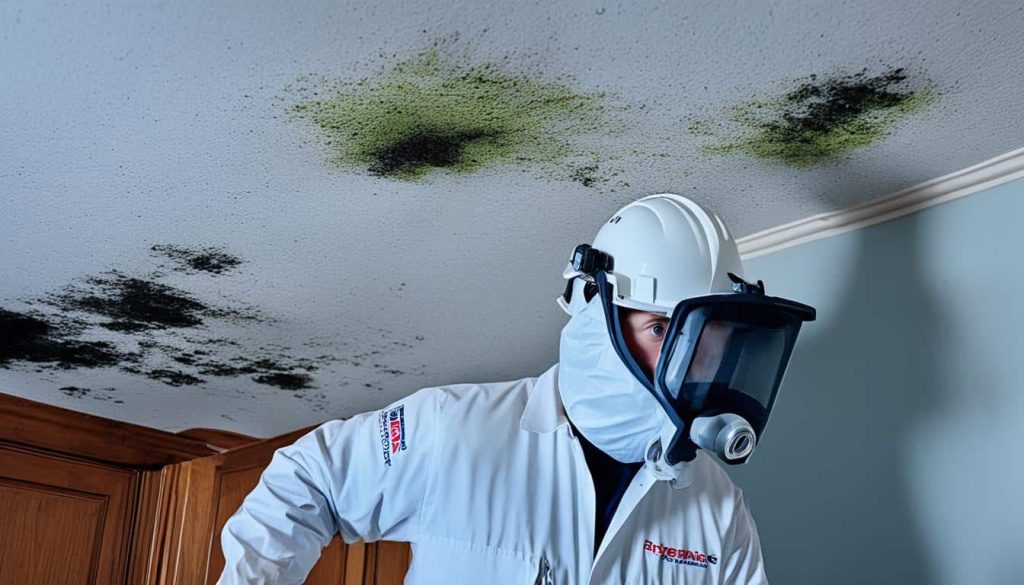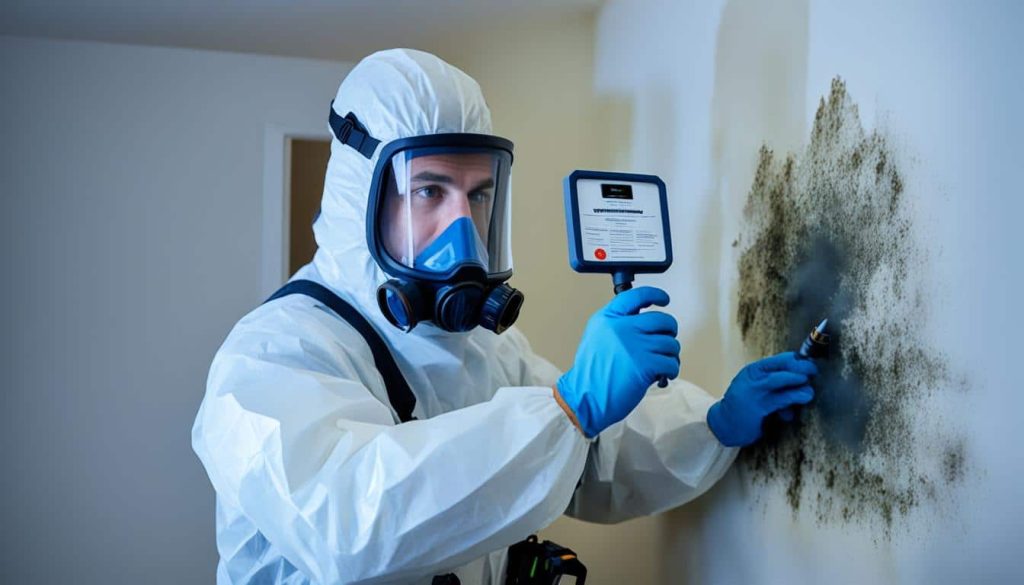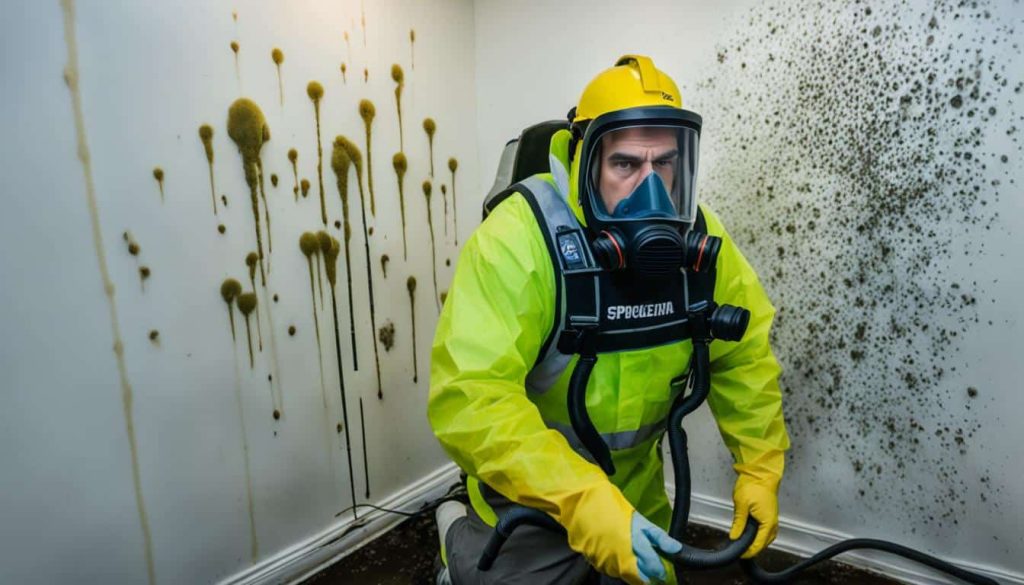As an expert with over a decade of experience in mold inspections and remediation, I’ve encountered countless cases where Mold Sickness – What are the signs, has gone undiagnosed or misunderstood. Despite the significant impact mold can have on health, it’s often overlooked by healthcare professionals, including allergists, immunologists, and ENT specialists. Understanding the signs and symptoms of mold sickness is crucial for addressing this hidden threat.
Array of Solutions, a trusted name in mold removal in Greenville South Carolina since 2007, stands ready to tackle your mold woes. With our expert mold inspection Greenville services and EPA-Registered credentials, we’re equipped to detect, remove, and prevent mold growth in your home or business.
Table of Contents
The Invisible Threat: Mold Sickness – What are the signs
Mold is a pervasive and often invisible problem. It thrives in warm, moist environments, making it a common issue in both indoor and outdoor spaces. While mold might seem benign, it produces mycotoxins—harmful byproducts of mold reproduction that can have serious health implications. Because most Americans spend a considerable amount of time indoors, the risk of mold exposure is high, especially if moisture issues are present.

Who is at Risk?
Almost everyone is at risk of mold exposure, particularly in homes or buildings where moisture problems are prevalent. Common sources of indoor moisture include leaks, seepage, excessive humidity, and flooding. Unfortunately, many people are unaware of these issues until health problems arise. Mold can grow in hidden areas such as crawlspaces, attics, and behind walls, making it difficult to detect without a thorough inspection.
Common Symptoms of Mold Sickness
The symptoms of mold sickness can vary widely, but they often start with upper respiratory issues. Here are some common signs to watch out for:
- Rhinitis: Inflammation of the nasal mucous membrane, causing a runny or stuffy nose.
- Sinusitis: Inflammation or infection of the sinus cavities, leading to facial pain, congestion, and headache.
- Hay Fever: Allergic reactions to mold spores, resulting in sneezing, itchy eyes, and a sore throat.
These symptoms are often mistaken for seasonal allergies or common colds. However, if they persist or worsen, especially in certain environments, mold exposure could be the underlying cause.
Uncommon and Severe Symptoms
In some cases, mold exposure can lead to more severe health issues, particularly in individuals with weakened immune systems or pre-existing conditions. These can include:
- Chronic Fatigue: Persistent tiredness and lack of energy not explained by other factors.
- Skin Irritations: Rashes, itching, or eczema that do not resolve with standard treatments.
- Cognitive Impairment: Difficulty with memory, concentration, and cognitive function.
- Respiratory Conditions: Chronic cough, wheezing, or asthma exacerbations.
These severe symptoms can significantly impact quality of life and may require specialized medical attention.
Why Mold is Often Overlooked
One reason mold sickness is often missed is the lack of awareness among healthcare providers about the impact of indoor air quality. Many professionals focus on treating symptoms without considering environmental factors. This can lead to misdiagnoses or ineffective treatments, leaving patients frustrated and seeking answers elsewhere.
How to Address Mold-Related Health Issues
If you suspect that mold might be affecting your health, it’s important to take action. Here are steps you can take:
- Get an Inspection: A thorough mold inspection can identify hidden mold sources and assess the extent of contamination. I, Douglas Whitehead, with over a thousand inspections under my belt, am here to help you understand the situation in your home.
- Address Moisture Issues: Mold growth is driven by moisture. Fixing leaks, controlling humidity, and ensuring proper ventilation are crucial steps in preventing and eliminating mold.
- Seek Professional Help: If you’re experiencing persistent symptoms or if mold contamination is severe, consulting with a mold remediation expert can help you address the problem effectively.
- Monitor Your Health: Keep track of your symptoms and consult with healthcare professionals who are open to exploring environmental factors like mold exposure.

Conclusion
Mold sickness is a serious health concern that is often overlooked. By understanding the signs and symptoms of mold exposure, you can take proactive steps to protect your health and your home. If you suspect mold may be affecting your living environment, contact me, Douglas Whitehead, at 864-710-6413. With my extensive experience and expertise, I can help you identify and address mold-related issues, ensuring a healthier living space for you and your family.

